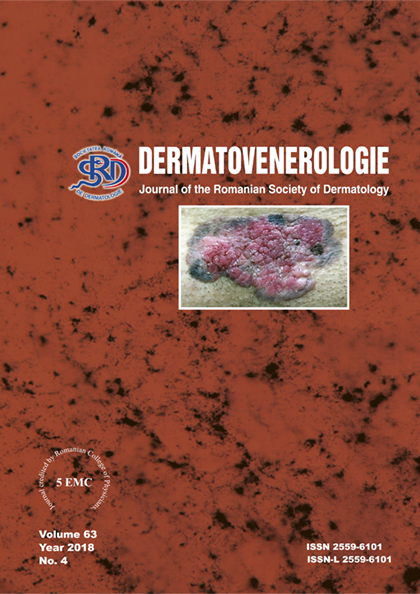Rezumat
în ciuda faptului că este o boală bine definită din punct
de vedere etiologic și patogenetic, cu teste serologice exacte
și accesibile și cu un tratament eficace, incidența sifilisului
continuă să crească lent, constituind o problemă majoră de
sănătate publică, în special în țările cu resurse medicale
limitate. în cadrul prezentului studiu, ne-am propus să
realizăm o evaluare atentă a evoluției în timp a valorilor
serologiei sifilisului la un număr semnificativ de pacienți
cu sifilis, corect tratați sub supraveghere de specialitate.
Subiecții incluși în studiu s-au aflat în diverse stadii
evolutive ale sifilisului.
Datele gasite arată că testul VDRL (veneral disease
research laboratory test) cu antigene nespecifice, se
negativează mai frecvent după un tratament corect în
stadiul I, perioada de latență neobligatorie și respectiv
stadiul II. în cazurile mai avansate, de sifilis în perioada de
latență obligatorie și respectiv stadiul III, titrul reacției
VDRL scade lent dar nu se negativează după tratamentul
corect timp de ani de zile. Alți markeri relevanți, utilizând
antigene treponemice specifice cum sunt TPHA
(treponema pallidum haemagglutination test) și testul
ELISA cu IgM au o evoluție clar predictibilă. TPHA a
rămas pozitiv pentru întreaga perioadă de urmărire, posibil
pentru restul vieții pacientului, iar ELISA IgM s-a
negativat constant la cel mult un an după tratament


